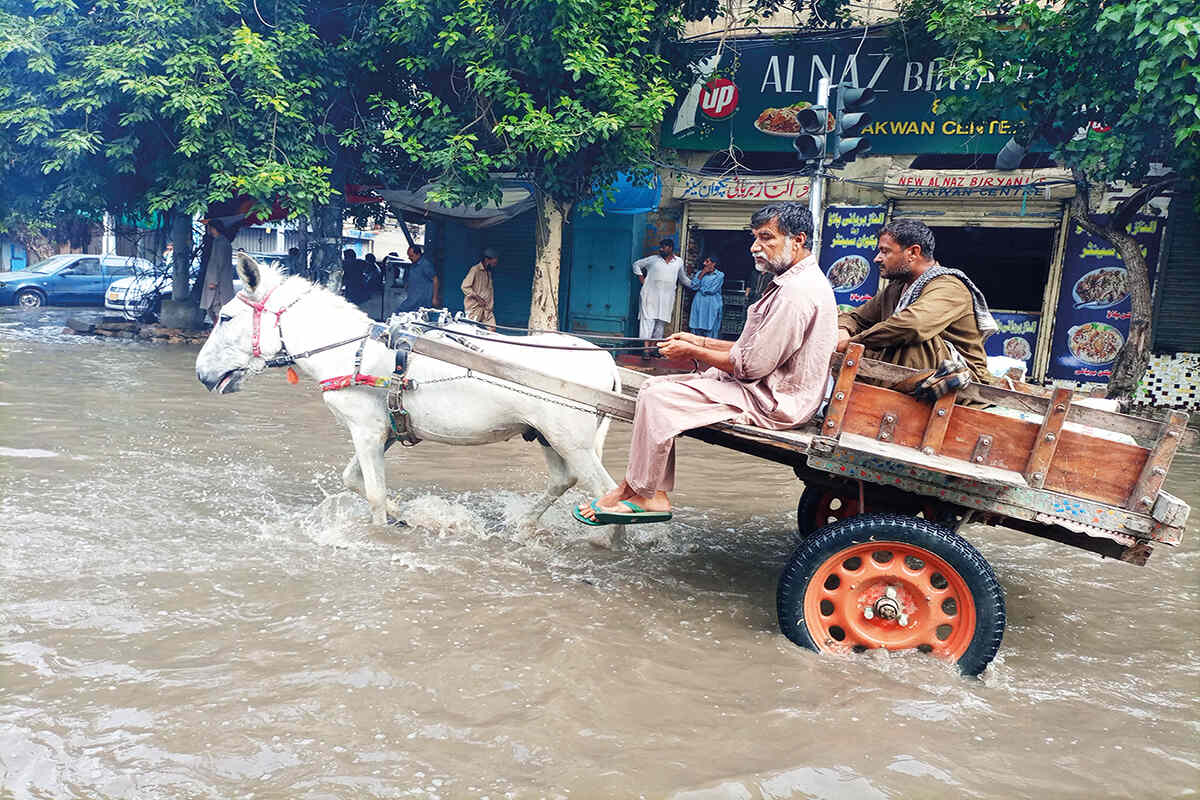
Summer 2022 saw devastating floods in Pakistan, but climate change is only one of a number of factors causing these disasters
This summer’s devastating floods in Pakistan, caused by a tripling of the country’s usual rainfall for August, were likely intensified by human-caused climate change. However, analysis of the flooding, conducted by researchers at the World Weather Attribution initiative, suggests that climate change is one of a number of factors; high rates of poverty and political instability also contributed to the amount of damage caused.
Scientists from Pakistan, India, the Netherlands, France, Denmark, South Africa, New Zealand, the US and the UK analysed whether, and to what extent, human-caused climate change altered the likelihood and intensity of this extreme rainfall. They found that the 5-day maximum rainfall over the provinces Sindh and Balochistan is now about 75 per cent more intense than it would have been had the climate not warmed by 1.2°C. However, they also found that the devastating impacts of the Pakistan floods were driven by the close proximity of human settlements and infrastructure to floodplains, as well as an outdated river management system, political and economic instability, and underlying vulnerabilities driven by levels of income and education.
The term ‘Natural disaster’ is widely used to report on the impact that natural hazards such as earthquakes, typhoons and volcanoes have on society or communities, including the damage and loss of life caused by the floods in Pakistan this year. But a growing number of scientists and aid workers are arguing that this terminology is misleading and turns the focus away from the human decisions that turn a natural event into a disaster. ‘This study illustrates very well what scholars in disaster studies have long argued: namely, that there’s no such thing as a natural disaster,’ says Leslie Mabon, lecturer in environmental systems at the Open University. Mabon adds that while climate change makes weather extremes more likely, political decisions influence who and where are worst affected by extreme events, and the extent to which people are able to adapt.




